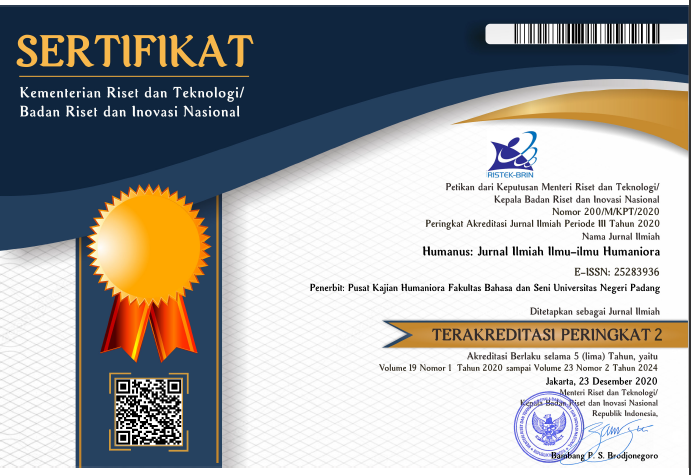Peran Perempuan Suku Minangkabau yang Menjadi Kepala Keluarga (PEKKA) bagi Penciptaan Ketahanan Pangan Rumah Tangga di Kecamatan Padang Timur
 ),
), (1)
 Corresponding Author
Corresponding Author
Copyright (c) 2016 Humanus
DOI : https://doi.org/10.24036/jh.v10i1.489
Full Text:
 Language : en
Language : en
Abstract
Segment of the third world's poorest people live in households headed by women, because in these households there is no man who can give income. When female heads of families are in a poor position then their ability to meet food needs for family members bear is also questionable. For the case of West Sumatra, although women are culturally Minangkabau tribe, has a fairly dominant position in the division of inheritance, which means has the advantage economically, but not necessarily female heads of families in West Sumatera is able to create and maintain a stable food security for the household, especially if fosterage family not just the nuclear family only. The power and intervention of ‘mamak’ is very strong in the decision making of high inheritance. This phenomenon indicates that the Minangkabau women actually do not have control over resources, such as land and other high inheritance. Moving on from the facts presented above writer is interested to dig further in research on women's roles Minangkabau tribe who became head of the family for the creation of household food security, with the focus of study in the Eastern District of Padang.
Kata kunci: perempuan kepala keluarga, ketahanan pangan rumah tangga
 Article Metrics
Article Metrics
 Abstract Views : 2700 times
Abstract Views : 2700 times
 PDF Downloaded : 1334 times
PDF Downloaded : 1334 times
Refbacks
- There are currently no refbacks.
Copyright (c) 2016 Humanus










